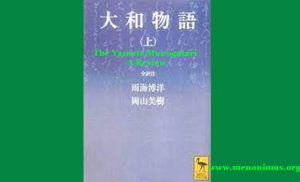The Yamato Monogatari-A Review
The Yamato Monogatari-A Review
The Yamato Monogatari- A Review
‘The Yamato Monogatari,’ a cornerstone of Japanese classical literature, offers readers a window into the cultural and social milieu of early Japan. This anthology of tales, composed during the Heian period (794-1185), is a reflection of the refined sensibilities, courtly intrigues, and poetic aesthetics that characterized this era. Comprising a collection of prose narratives and poems, ‘The Yamato Monogatari’ serves as an invaluable source for understanding the cultural heritage and literary achievements of ancient Japan.
Content and Structure:
The anthology presents a series of stories, poems, and anecdotes, set against the backdrop of the Japanese imperial court. The tales are intricately woven, each narrating the lives, loves, and challenges faced by the courtly men and women of the time. The structure is centered around themes of romance, tragedy, and human relationships. The stories often emphasize the power of emotions, such as love and jealousy, and provide insight into the intricacies of the Heian aristocracy.
Narrative Style and Language:
Written in classical Japanese, the prose style of ‘The Yamato Monogatari’ is characterized by its elegance, subtlety, and poetic beauty. The language is rich in metaphor and symbolism, often referencing nature to convey emotional depth and resonance. The narrative employs a third-person omniscient perspective, which allows readers to delve into the thoughts and feelings of multiple characters. The deliberate pacing and detailed descriptions create an immersive experience, transporting readers to the opulent world of the Heian court.
Themes:
Love and Longing: Central to the anthology is the theme of unrequited love and unattainable desire. The characters navigate the complexities of romantic relationships within the constraints of societal norms and conventions.
Social Hierarchy and Etiquette: The stories emphasize the rigid social hierarchy of the imperial court and the importance of proper conduct and etiquette. The characters’ actions are often dictated by their rank and position.
Nature and Symbolism: Nature serves as a powerful metaphor throughout the anthology, reflecting the characters’ emotional states and the transient nature of human existence.
Gender Roles: ‘The Yamato Monogatari’ provides insight into the roles of men and women in Heian society. The stories highlight the challenges and restrictions faced by women, often bound by tradition and relegated to passive roles.
Cultural Significance:
Historical Insights: The anthology offers a unique window into the daily lives, customs, and traditions of the Heian court. It preserves valuable insights into courtly rituals, poetry contests, and cultural practices of the time.
Literary Excellence: The collection showcases the refinement of Heian literature, combining prose and poetry to create a harmonious aesthetic. The use of kana syllabaries facilitated the rise of women writers, contributing to the diversification of literary voices.
Aesthetic Sensibility: ‘The Yamato Monogatari’ exemplifies the Japanese aesthetic concept of mono no aware, which acknowledges the impermanence of life and the beauty found in transience.
Relevance Today:
Despite being centuries old, ‘The Yamato Monogatari’ continues to captivate modern readers with its timeless themes of love, human emotions, and societal constraints. The struggles and desires of the characters remain relatable, transcending the temporal and cultural gaps.
‘The Yamato Monogatari’ is a literary gem that transports readers to a bygone era of elegance and beauty. Its profound exploration of human emotions, coupled with its exquisite language and cultural insights, makes it an indispensable masterpiece of Japanese literature. By delving into the lives of courtly men and women, the anthology not only enriches our understanding of Heian society but also provides a mirror to our own experiences and aspirations. 0 0 0.
The Yamato Monogatari-A Review
You May Like: Beowulf-A Review
N.B. The article ‘The Yamato Monogatari-A Review’ originally belongs to the book entitled ‘The Reviews of Epic Literature Around the World Vol-II‘ by Menonim Menonimus.








